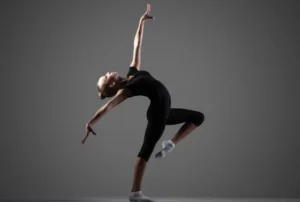
People often talk about sports as if it’s all about winning, competition, or chasing a perfect body. But real movement — the kind that keeps you going for years — isn’t about medals or records. It’s about how you feel when your body wakes up and starts working the way it’s meant to.
You don’t need to be an athlete to love movement. You just need to remember that your body was designed to move, not to sit still all day.
The Quiet Power of Routine
Starting is always the hardest part. The first run, the first stretch, the first ten minutes after you’d rather stay on the couch. But the truth is, once you begin, something shifts. Your heart rate rises, your mind clears, and for a few moments, the noise of daily life fades away.
That feeling — the quiet rhythm between breath and motion — is what keeps people coming back. Sports are less about discipline than about that moment of flow, when effort feels natural and time disappears.
It doesn’t matter if it’s running, cycling, swimming, or just walking fast enough to feel your heartbeat. The form isn’t the point. The consistency is. Your body learns patterns faster than your mind does. Once it understands that movement is part of daily life, it starts asking for it on its own.
The Connection Between Body and Mind
Exercise has a way of fixing things you didn’t realize were broken. When you move, blood flows faster, oxygen reaches your brain, and the fog of stress lifts. Problems that seemed impossible start looking manageable. You think clearer, breathe deeper, and sleep better.
Sports teach patience. They remind you that change takes time, that progress often feels invisible until one day it doesn’t. They also teach humility — that strength comes in layers, and rest is part of growth.
When you focus only on appearance or performance, the joy fades quickly. But when you focus on how movement makes you feel, it becomes something sustainable — something that belongs to you.
Not Every Day Needs to Be Perfect
There will be days when your energy drops, when you skip training or don’t push as hard. That’s part of the process, not a failure. The body needs balance just as much as challenge. Rest days, long walks, or slow stretching count as movement too.
Sport is a conversation with yourself, not a test. Some days you feel strong; other days you don’t. The key is to keep showing up — not because you have to, but because it reminds you who you are when you move.
Over time, that consistency builds something deeper than muscle: trust. You begin to trust your body again — its signals, its limits, its resilience. That trust often spills into other parts of life, shaping how you handle pressure, fatigue, and even self-doubt.
The Social Side of Sports
Movement can be personal, but it also connects people. Running with a friend, joining a local team, or just chatting at the gym — these small interactions build community. Sports remind you that progress doesn’t have to be lonely.
Even when you train alone, you become part of something bigger — millions of others moving for the same reasons: to feel better, to stay strong, to clear their minds. That silent connection between strangers is part of what makes sport universal.
Health, Not Perfection
In a world obsessed with appearance, it’s easy to forget that the goal of movement is health, not control. The body changes constantly. It’s not a sculpture; it’s a living system that adapts to how you treat it. Sports give it the chance to thrive.
When you move regularly, you start noticing beauty in strength — the way your lungs expand, the steadiness of your balance, the quiet power behind every motion. Those details remind you that health itself is a form of beauty. It’s not something you achieve once; it’s something you maintain with care.
The Bottom Line
Sports aren’t about motivation or competition. They’re about movement — the simple act of being alive in your body. You don’t need fancy gear or perfect discipline. You need curiosity, patience, and a bit of self-respect.
When you move, you remember what it feels like to be present. You reconnect with the part of yourself that still believes in progress, no matter how small. And somewhere between effort and calm, you find the thing that makes every athlete — and every person — keep going: not the chase for perfection, but the love of motion itself.
Picture Credit: Freepik
